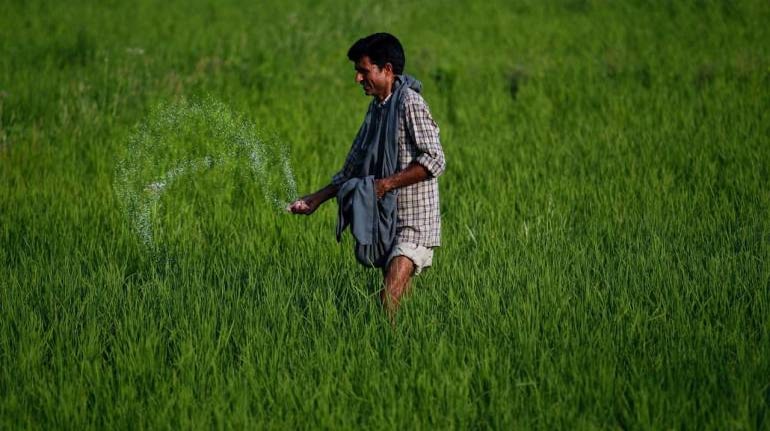



The fertiliser subsidy bill is likely to more than double this fiscal as the squeeze on gas supplies by Russia to Europe hardens global prices. India remains an import-dependent country as far as the fertiliser sector is concerned.
Industry officials say that despite a significant jump in the domestic production of urea this fiscal, the import bill (which includes urea as well as phosphatic fertilisers) will remain inflated.
Analysts at brokerage IIFL have said that the Centre’s fertiliser subsidy bill could exceed Rs 2 lakh crore, raising concerns over the meagre allocation of Rs 1,05,222 crore in the BE (budget estimate) for FY23. The allocation for fertiliser subsidy this fiscal is nearly 25 percent less than the revised estimates for FY22.
Domestic urea production to riseA senior industry official said on condition of anonymity that the domestic production of urea, which accounts for nearly 40 percent of all fertilisers, would likely witness a significant increase this fiscal due to the commissioning of two new plants and increased output from the existing ones.
He pegged the total domestic output of urea at about 33 million tonnes (MT) in FY23, and said that imports would be significantly lower than last fiscal. Official estimates for domestic urea production this year is 31.7 MT.
India’s demand for urea has been increasing year on year. It was over 35 MT in FY22, and domestic production was around 25 MT, a reply to a question in Parliament shows.
Fertiliser subsidy bill expected to explode
The Centre’s fertiliser subsidy bill is expected to explode this fiscal, increased domestic production notwithstanding, since farmers pay a fixed price of Rs 242 per bag (45 kg) of urea and the balance is provided by the government.
As import prices harden, the subsidy component for each bag also goes up and the government does not seem inclined to cut back on the subsidy per bag for farmers.
In reply to a question in Parliament by Derek O’Brien of the Trinamool Congress, the government has admitted that the cost of importing urea alone went up by nearly one-and-a-half times in FY22 (BE to actual) to Rs 50,250.4 crore, when the BE was just Rs 19,550 crore. Despite the unprecedented surge in import prices, the BE for urea imports for FY23 has been kept at just Rs 20,590 crore.
In any case, the rosy estimate of the urea demand-supply situation given by industry officials comes with a caveat: unless there is continued availability of natural gas from Russia, these estimates would vary.
Gas availability a concernThe official said that GAIL has a long-term contract for natural gas supply with a company which gets it from Russia, and, already, there are indications of a shortfall.
“These gas-supply contracts are long-term ones, and if one has to buy gas at spot prices, it will become very costly. If gas remains unavailable, this may impact domestic urea production later in the fiscal year. As of August 2022, the indigenous production of urea has been much more than in the same period last year. Also, import prices of urea have remained high as the Ukraine-Russia conflict continues to squeeze gas supplies to Europe and import prices remain elevated,” the official said.
For phosphatic fertilisers (Di Ammonium Phosphate and others), too, the situation remains “delicate”. The official said that import prices of DAP have come down recently.
US demand, China ban on exports double whammy“But how long will they remain low is a big question. Brazil is a major importer of DAP. Recently, it reduced imports. This helps in keeping import prices low. But China, which has been exporting urea and DAP till two years back, has stopped exports. Also, the demand for DAP from the US may increase because the government there has been advising farmers to increase the area under certain crops. So while prices are down now, the supply squeeze due to China’s export ban and increased demand from the US may again raise prices,” he said.
As per this reply in the Lok Sabha on August 5 this year, India’s urea import bill jumped by a whopping 366 percent between 2017-18 and 2021-22, from $1,295.87 million to $6,041.06 million.
During these five years, domestic production of urea has only increased by about 10 lakh tonnes. Urea accounts for about 40 percent of the country’s total fertiliser requirement annually. In FY22, nearly a third of the urea required had to be imported despite the highest domestic production in the last five years.
Overall, India could produce just about 60 percent of its total fertiliser requirement indigenously in FY22.
Earlier this month, minister of chemical and fertilisers Mansukh Mandavia had assured farmers of adequate availability of fertilisers for the upcoming Rabi sowing.
Also, the government has announced the ‘One Nation, One Fertiliser’ scheme, which will be implemented from October 2 this year. Under the scheme, all urea manufacturers, whether government-owned or private, will be able to sell their bags under the ‘Bharat’ brand name.
The order does away with branding by different manufacturers and the government believes that since it carries nearly 90 percent of the subsidy burden for urea, there is no case for private manufacturers to build their own brands.
While analysts have said that this move will keep large companies from investing in brand-building and other value-addition activities, industry watchers say that there is unlikely to be any major impact. “There is hardly any value-.addition by manufacturers in urea. They were only doing some extension services like demonstration to farmers about good practices etc.,” said an industry veteran.
Discover the latest Business News, Sensex, and Nifty updates. Obtain Personal Finance insights, tax queries, and expert opinions on Moneycontrol or download the Moneycontrol App to stay updated!
Find the best of Al News in one place, specially curated for you every weekend.
Stay on top of the latest tech trends and biggest startup news.